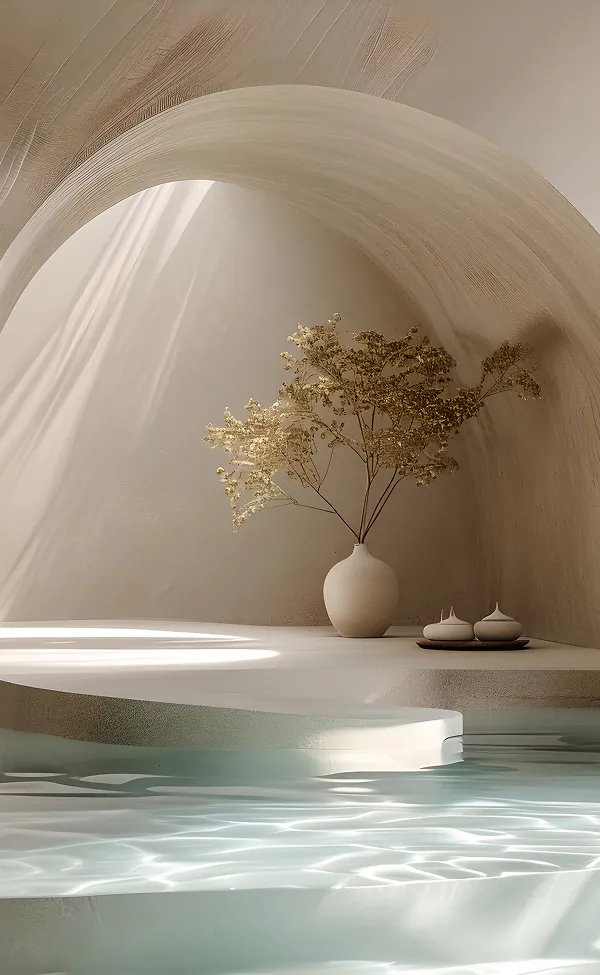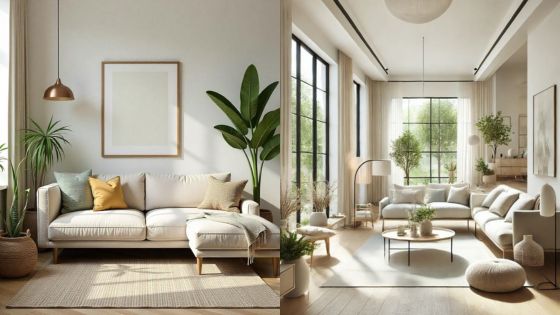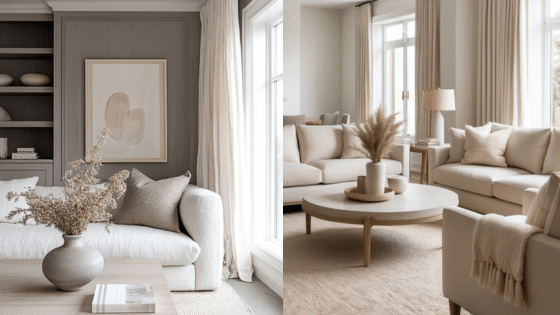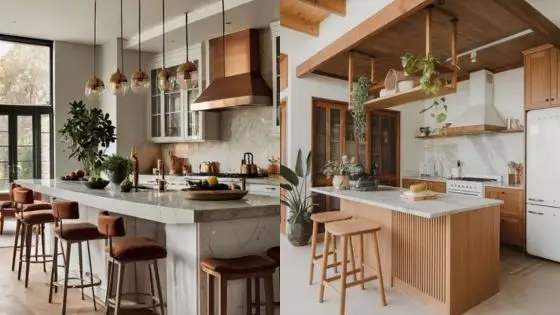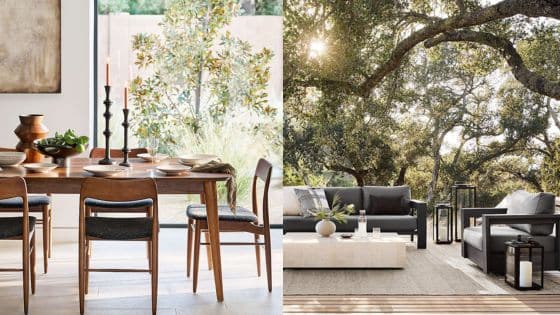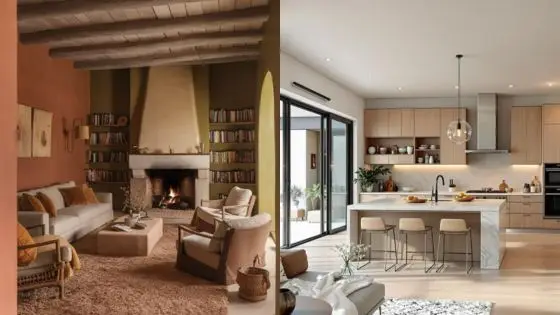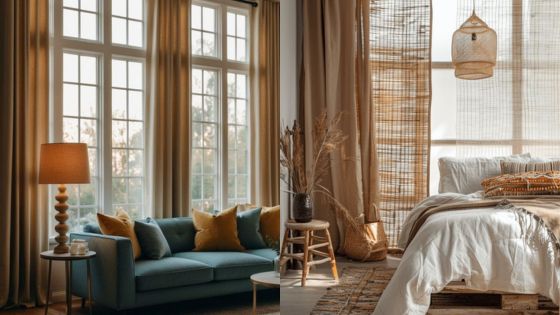A modern kitchen blends clean lines, smart storage, and sleek appliances to create a space that is both stylish and practical. It focuses on simplicity and function, making cooking and gathering easier and more enjoyable. The key to a modern kitchen is balancing form and function to fit the needs of today’s lifestyle.
People often choose modern kitchens for their minimalist look and efficient use of space. Neutral colors, smooth surfaces, and built-in technology are common features that make these kitchens stand out. Whether it’s a small apartment or a large home, a modern kitchen can be designed to fit any space while keeping it inviting.
These kitchens also often include smart appliances and clever storage solutions that keep the space organized and clutter-free. The style grows from a desire to have a ready-to-use kitchen that looks neat and feels open. This approach to design helps create a relaxed, welcoming environment at the heart of any home.
Key Elements of Modern Kitchens
Modern kitchens focus on clean, organized spaces with smart technology and clever storage. Bright rooms with open flow and easy-to-use tools make cooking and gathering more enjoyable.
Open-Concept Layouts
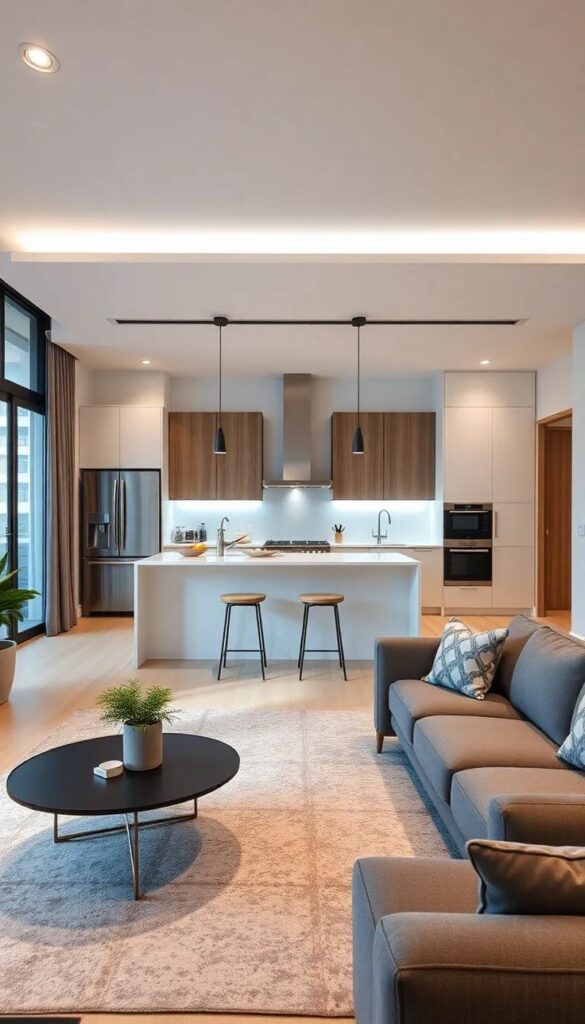
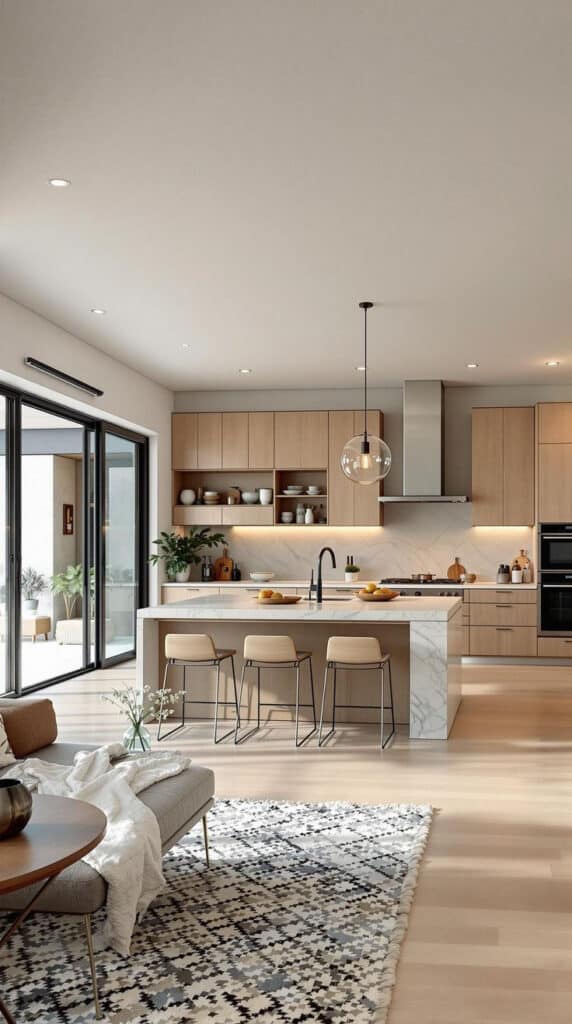
Open-concept layouts remove walls between the kitchen, dining, and living areas. This design increases natural light and creates a roomy feel. It helps people move freely and allows easy interaction during cooking or entertaining.
Islands and peninsulas often replace tables to save space and add extra work surfaces. Seating around these spots promotes casual dining and socializing.
This layout fits well with smaller homes too, making them feel larger and less crowded. It also supports modern living where kitchens are not just for cooking but for gathering.
Minimalist Design Principles
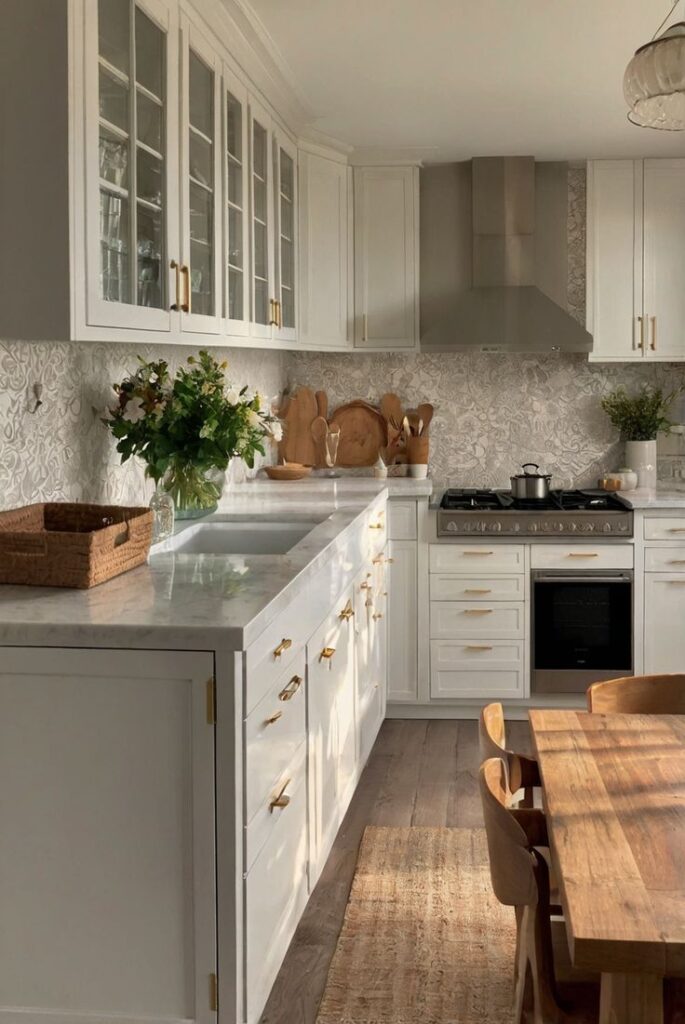
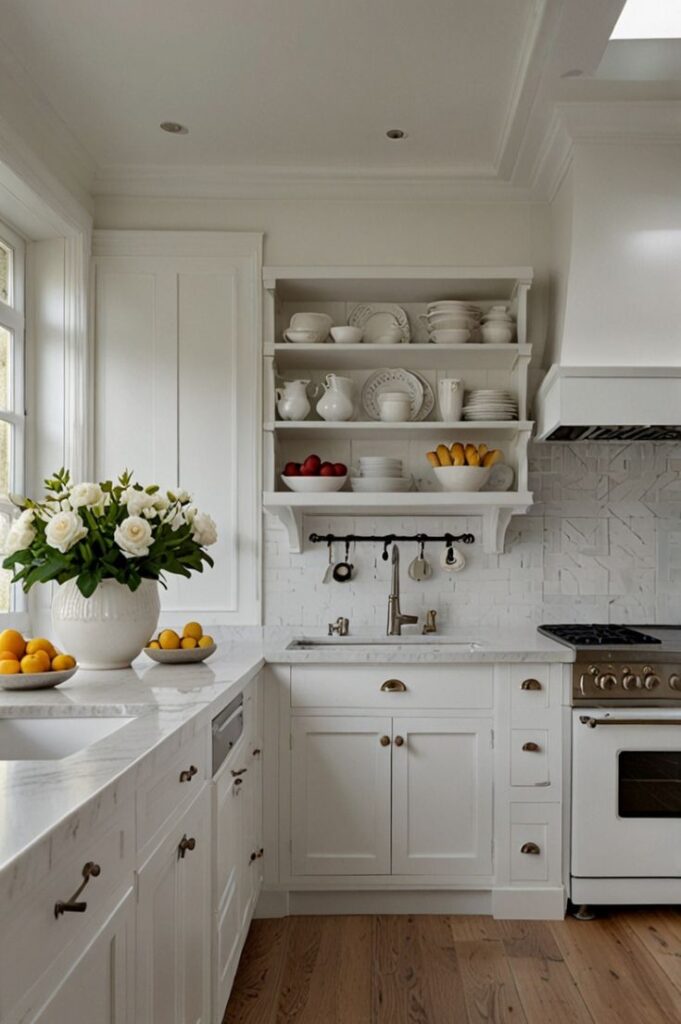
Minimalism means simplicity and focus on essential elements. Modern kitchens use flat-panel cabinets with no decorations or complex shapes. Hardware is simple, like slim handles or hidden pulls.
Colors tend to be neutral or bold but without too much mix. Whites, blacks, and grays are common, paired with smooth surfaces like quartz or steel.
Clutter is minimized by keeping countertops clear and using smart storage. Light fixtures are often sleek and geometric, adding style without crowding the space.
Cutting-Edge Appliances
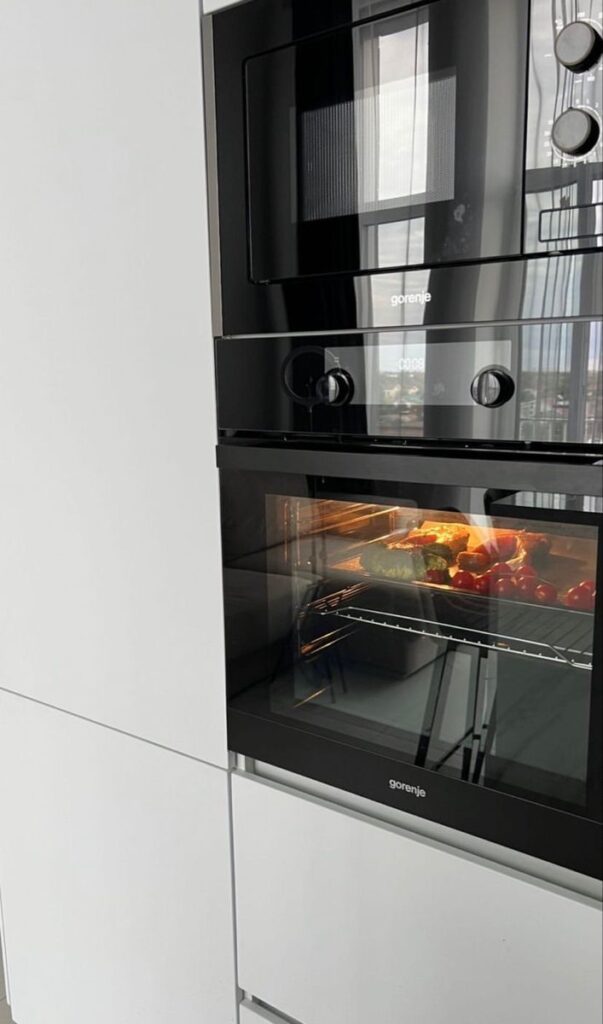
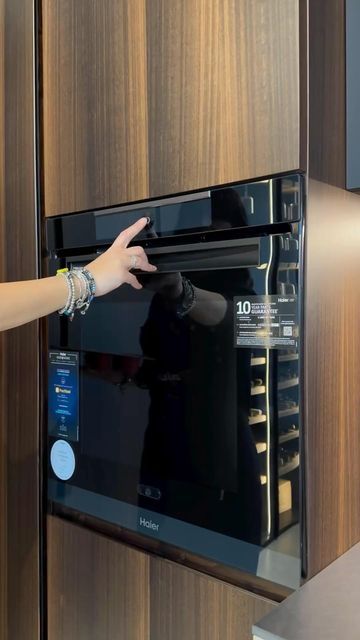
Modern kitchens include appliances with smart technology. Connected refrigerators can track food and suggest recipes. WiFi-enabled ovens can be controlled remotely for better timing.
Dishwashers and microwaves often feature modern interfaces with touch screens or voice control. These tools speed up cooking and cleaning, making daily tasks easier.
Energy efficiency is also important. Newer appliances use less power and water, saving money and helping the environment.
Innovative Storage Solutions
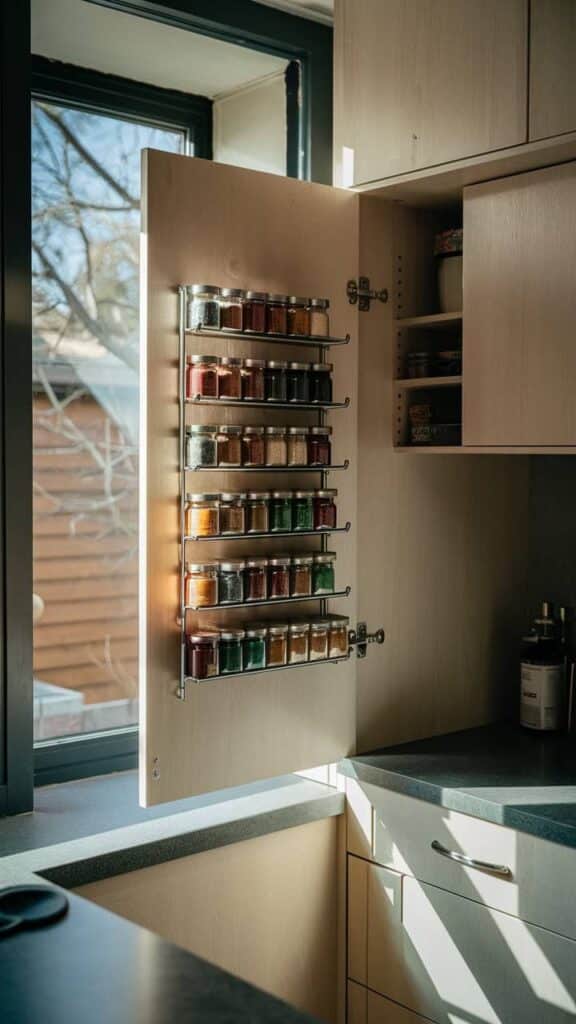
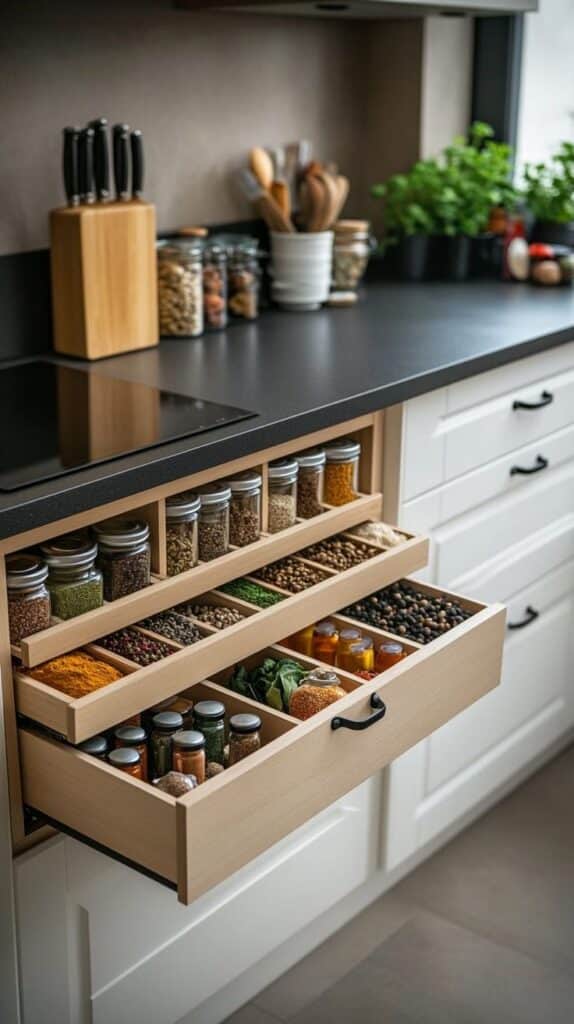
Storage in modern kitchens is designed to be hidden yet easy to access. Pull-out cabinets let people reach items at the back without bending or digging.
Vertical storage and drawer organizers keep things neat and visible. Some cabinets have adjustable shelves to fit different items.
Open shelving might be used but only to show a few neat, decorative pieces. This keeps the kitchen feeling open without looking messy.
Good storage makes a kitchen more practical and enjoyable to use every day.
Modern Kitchen Materials and Finishes
Modern kitchens often use materials and finishes that create a clean and stylish look while being practical for everyday use. These choices include smooth, minimalist cabinetry, durable countertops, and flooring that balances style with function.
Sleek Cabinetry Choices
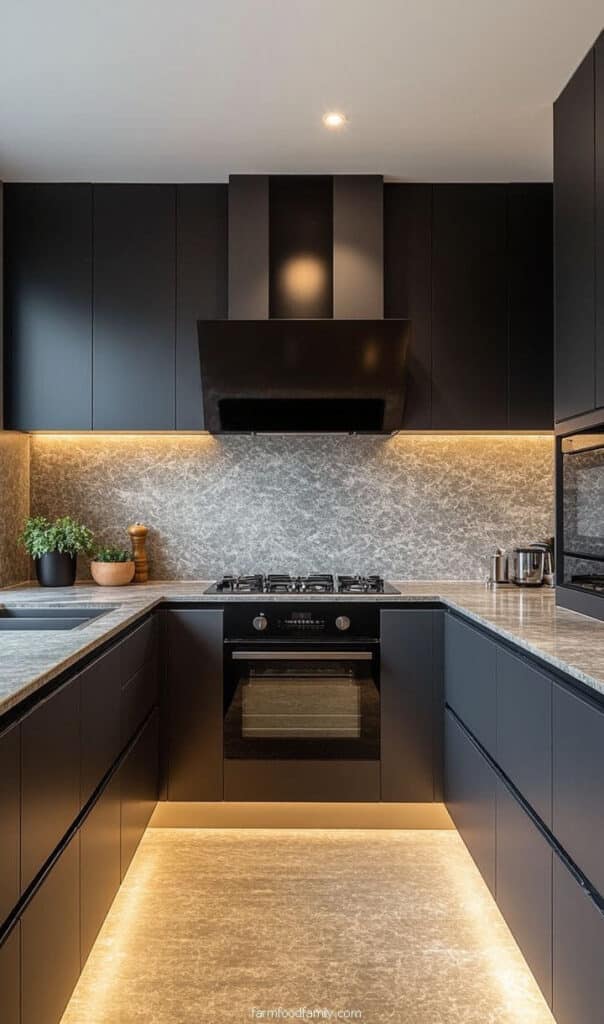
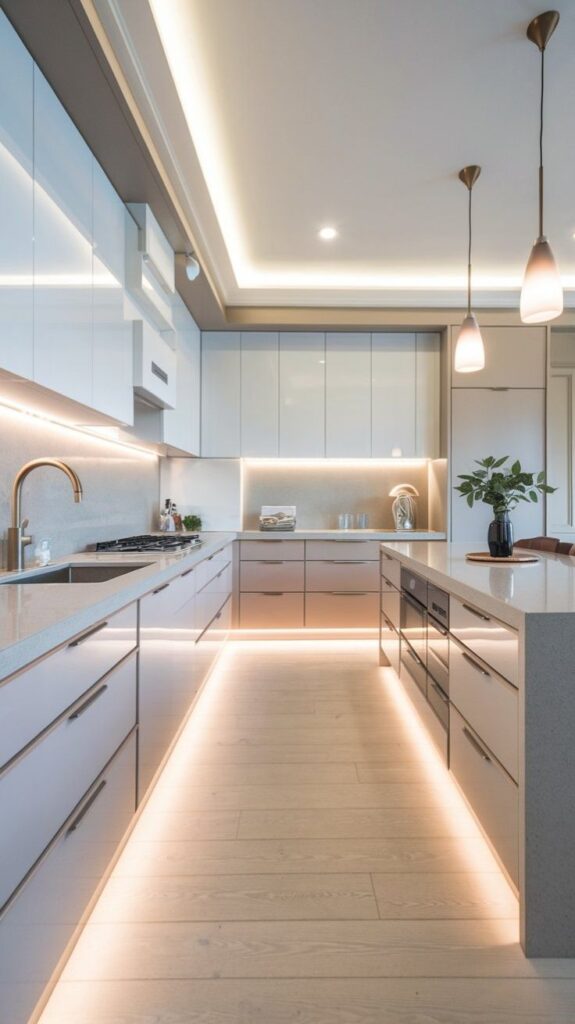
Cabinetry in modern kitchens is simple and smooth, usually with flat fronts and no extra decoration. People often choose materials like matte or glossy lacquered surfaces in neutral colors such as white, gray, or black. Another popular option is wood veneer, which adds a natural touch while keeping the design clean.
Handles are often hidden or replaced with slim, integrated pulls. This keeps the cabinets looking streamlined. Durable materials like MDF with laminate or painted finishes are common because they resist wear and are easy to clean.
Countertop Trends
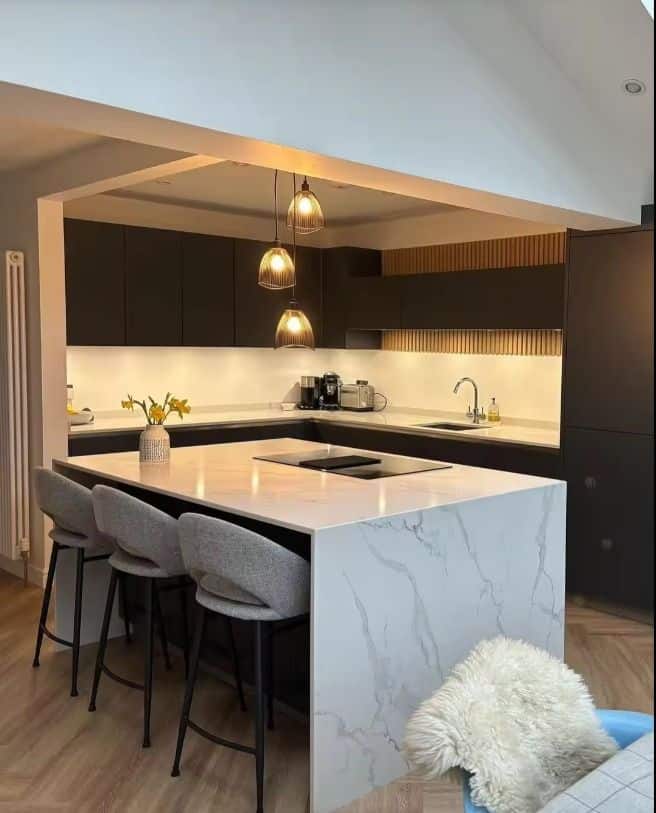
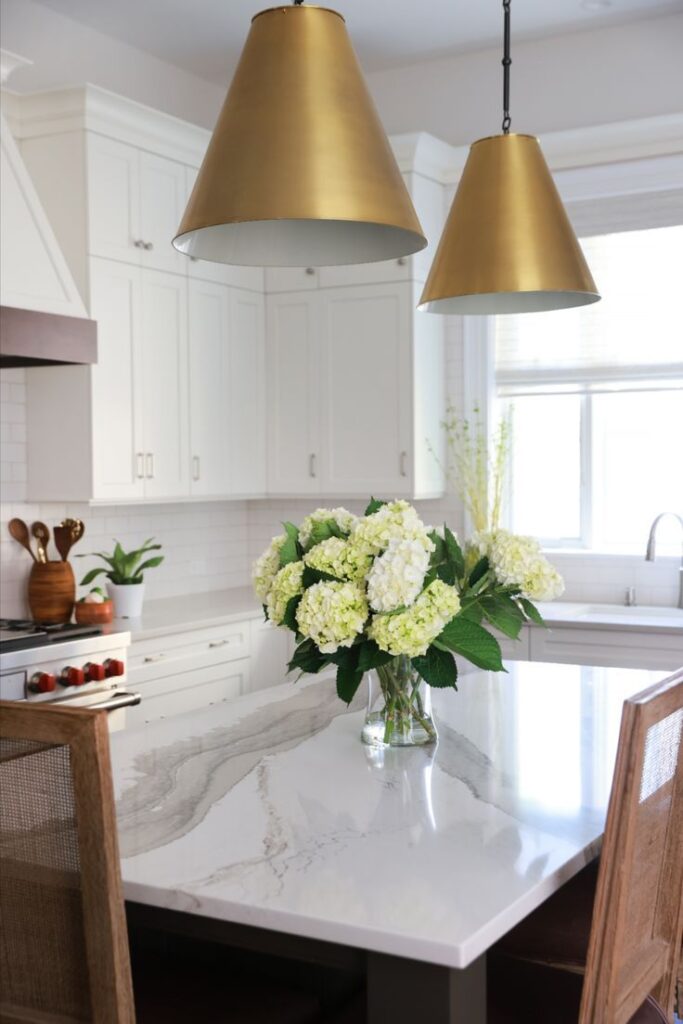
Countertops in modern kitchens focus on strength and style. Engineered stone like quartz is popular because it combines beauty with scratch and stain resistance. Quartz comes in many colors, including cool tones like white, gray, and even black with subtle patterns.
Concrete and stainless steel are also trendy materials. Concrete offers a textured, industrial look and can be sealed for durability. Stainless steel is easy to clean and matches modern appliances well. Solid surface counters are another option, known for their seamless appearance and repairable nature.
Contemporary Flooring Options
Flooring in modern kitchens blends durability with sleek visuals. Porcelain tile is a favorite because it resists water and wear, making it perfect for busy kitchens. It comes in many styles, including large-format tiles that reduce grout lines for a smooth look.
Wood flooring, especially engineered hardwood, adds warmth while handling changes in temperature and moisture better than solid wood. For a more industrial feel, polished concrete floors are becoming popular. They are tough and have a smooth, reflective finish.
| Material | Benefits | Common Colors / Finishes |
|---|---|---|
| Porcelain Tile | Durable, water-resistant, low-maintenance | Neutral tones, stone look |
| Engineered Wood | Warm, moisture-resistant | Natural wood shades |
| Polished Concrete | Strong, sleek, reflective | Gray, custom stains |
Designing Your Modern Kitchen
A modern kitchen works best when it balances style with function. Careful choices about space, colors, and lighting help create a kitchen that feels both fresh and practical. Easy flow, bright tones, and smart light sources make the space comfortable and inviting.
Space Planning and Layout Tips
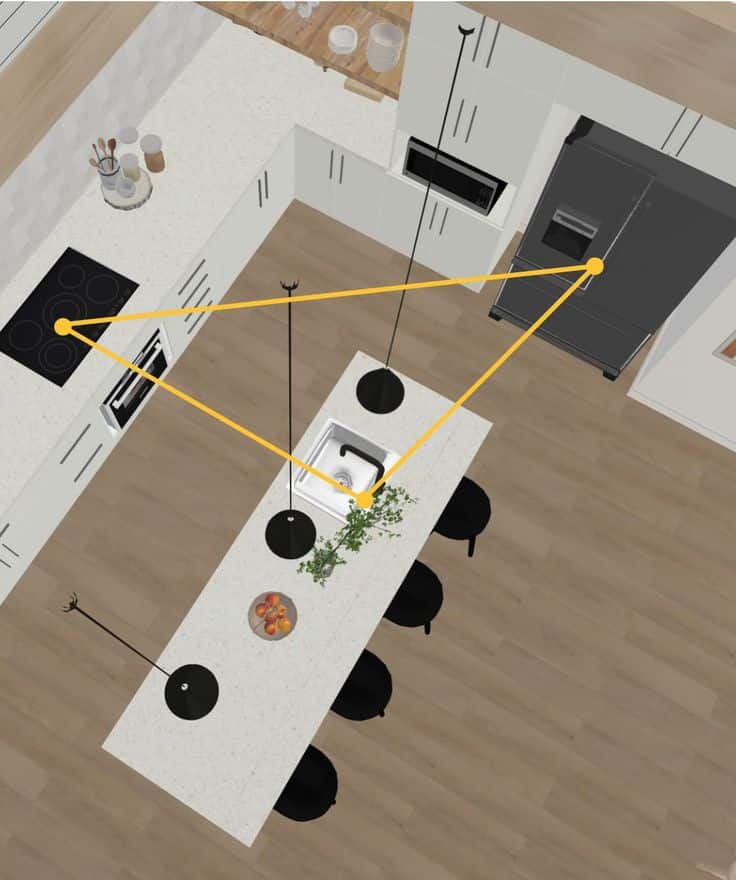
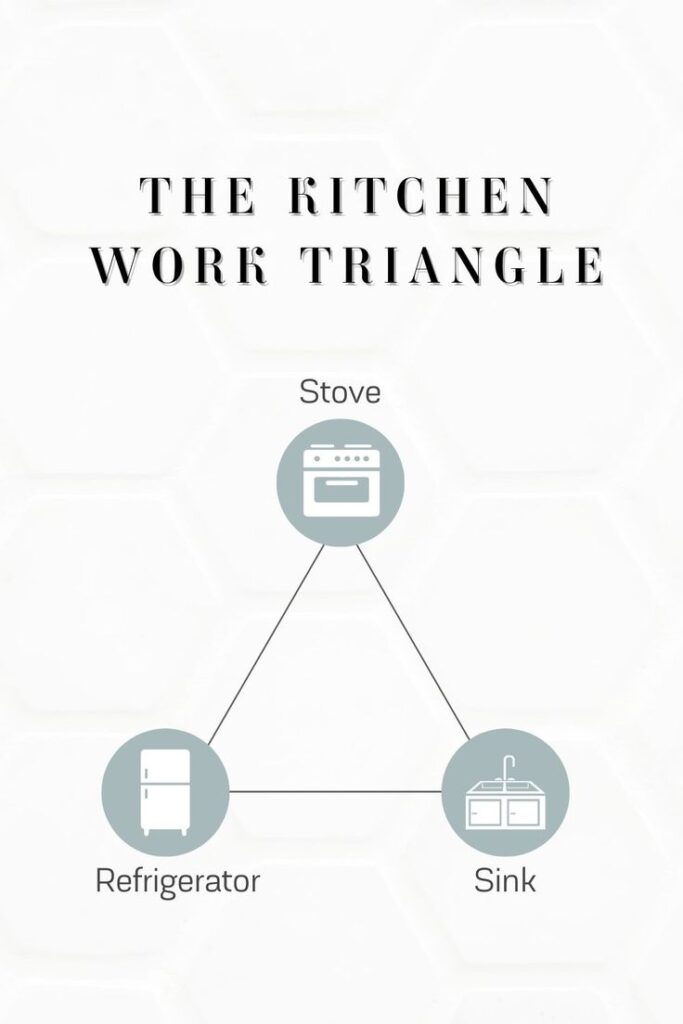
Efficient space planning is key for a modern kitchen. It focuses on clear work zones for cooking, cleaning, and storage. The popular “kitchen work triangle” links the stove, sink, and fridge to save steps. Open layouts are common, often combining kitchen and living areas for a roomy feel.
Kitchen islands add extra workspace and can double as seating or storage. Cabinets are usually sleek and flush with walls to avoid clutter. Using built-in appliances keeps the design clean. Proper spacing around counters and appliances ensures smooth movement and safety.
Color Schemes for a Fresh Look
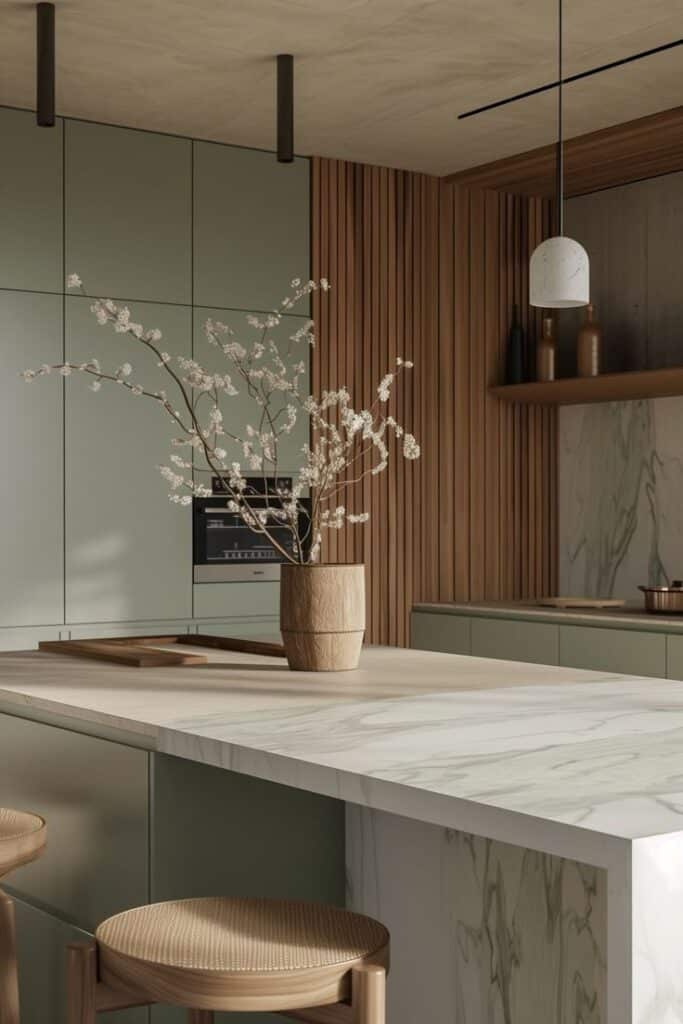
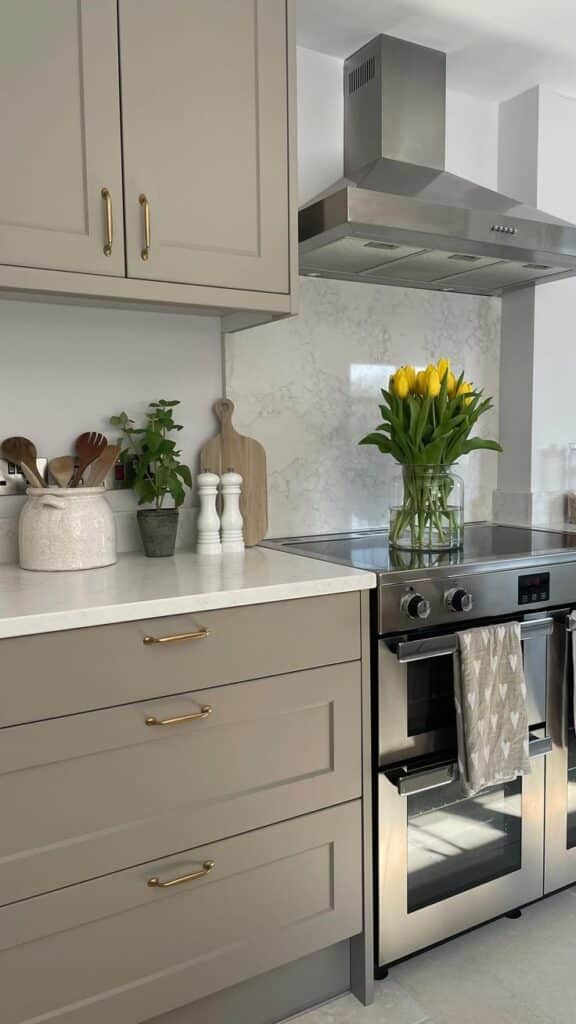
Modern kitchens often use light, neutral colors like white, gray, and beige to create a clean look. These colors brighten the space and make it feel larger. Adding a pop of color with the island or backsplashes can give personality without overpowering the design.
Matte and glossy finishes are popular for cabinets and surfaces. Soft tones like pale blues or greens bring calmness. Wood accents, combined with neutral colors, add warmth and prevent the kitchen from feeling too cold or sterile.
Lighting Strategies for Modern Spaces
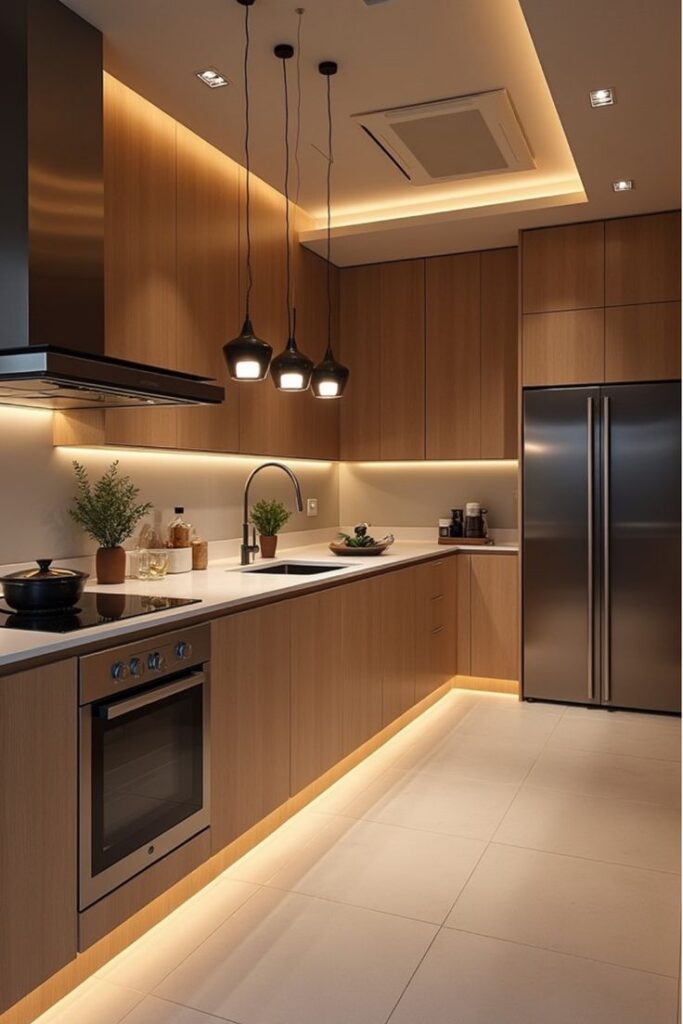
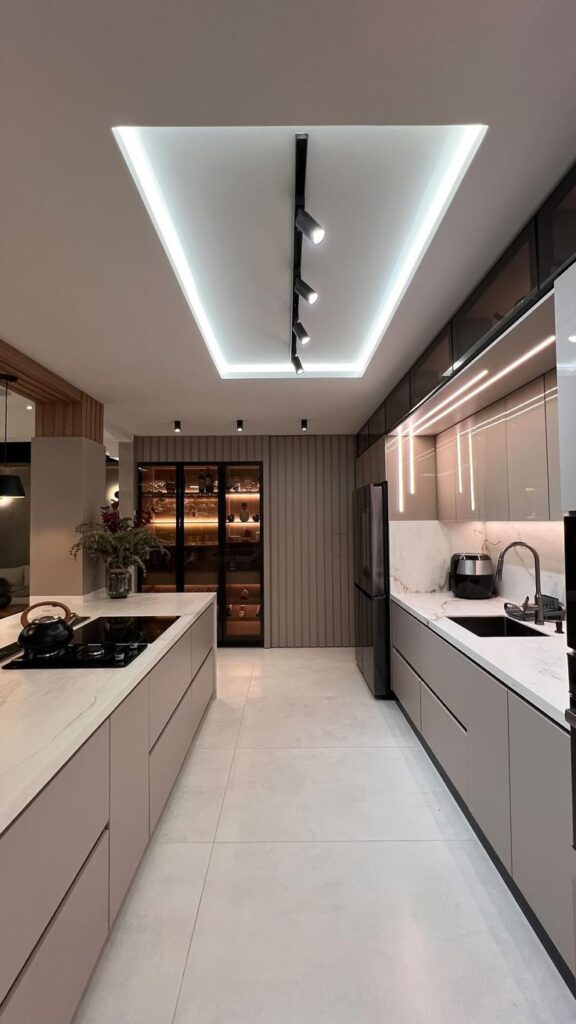
Good lighting is essential in a modern kitchen to enhance both style and function. Layered lighting works best. Task lighting under cabinets or above the island helps with cooking and prep work. Ambient lighting provides overall brightness, often from recessed ceiling lights.
Accent lighting highlights features like open shelves or artwork. Using LED lights saves energy and keeps the kitchen bright. Dimmer switches let you control brightness, changing the mood from work-focused to relaxing. Natural light, when possible, should be maximized with big windows or glass doors.
Sustainable and Smart Features in Modern Kitchens
Modern kitchens focus on saving energy and using materials that are good for the planet. They also use technology to make everyday tasks easier and help reduce waste and bills.
Eco-Friendly Materials
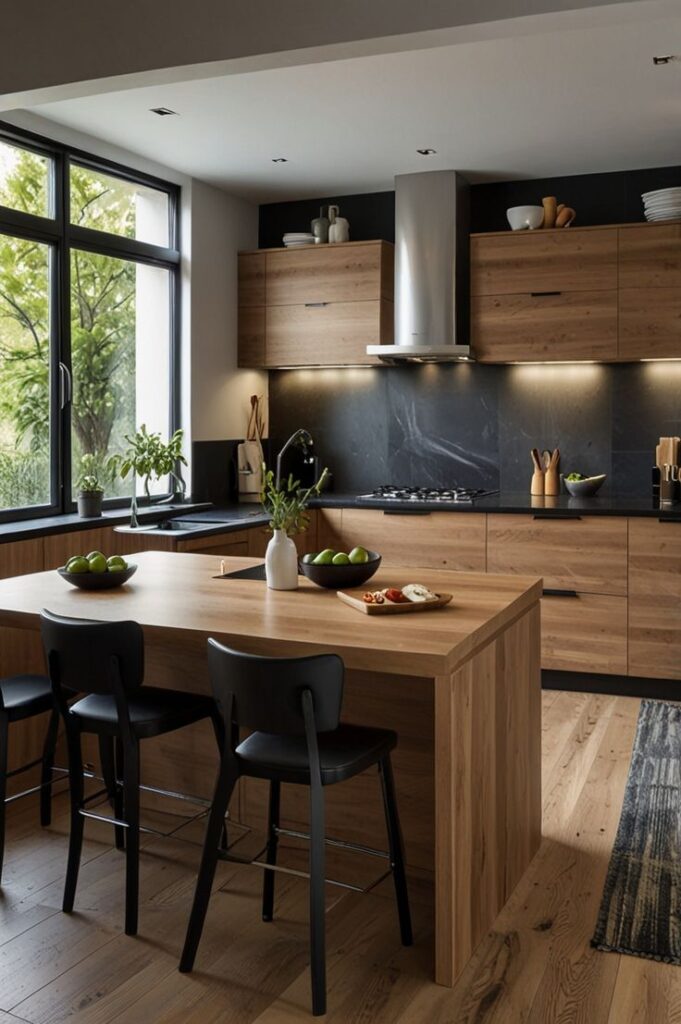
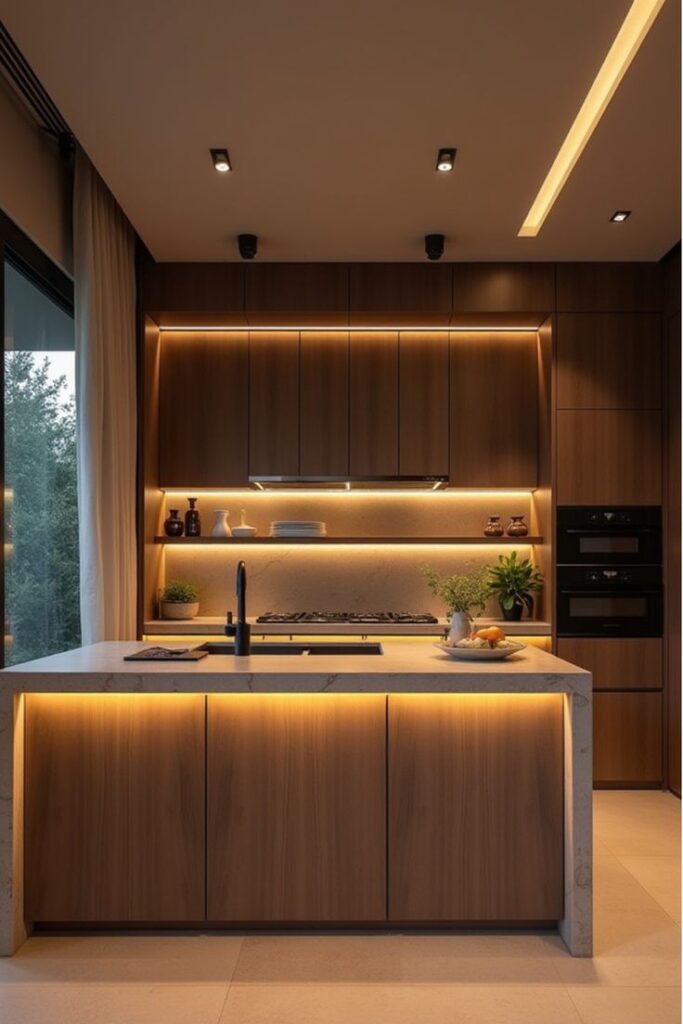
Many modern kitchens use materials like bamboo, recycled wood, and natural stone. These materials last a long time and reduce the need for new resources. For flooring and countertops, options like cork and recycled glass are popular because they are both stylish and sustainable.
Using energy-efficient appliances is another key part. These use less power and water, cutting monthly utility costs. Homeowners often choose LED lighting, which uses less energy and stays bright longer than traditional bulbs.
Choosing materials and appliances with environmental certifications helps ensure they meet green standards. This can improve air quality inside the kitchen and reduce the home’s overall carbon footprint.
Smart Home Technology Integration
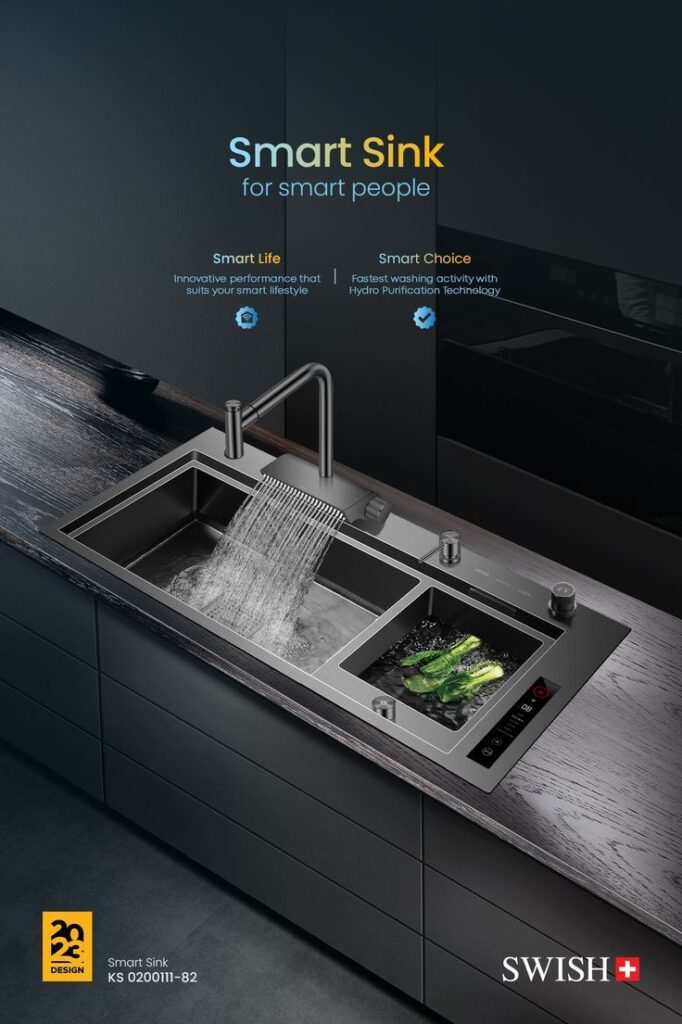
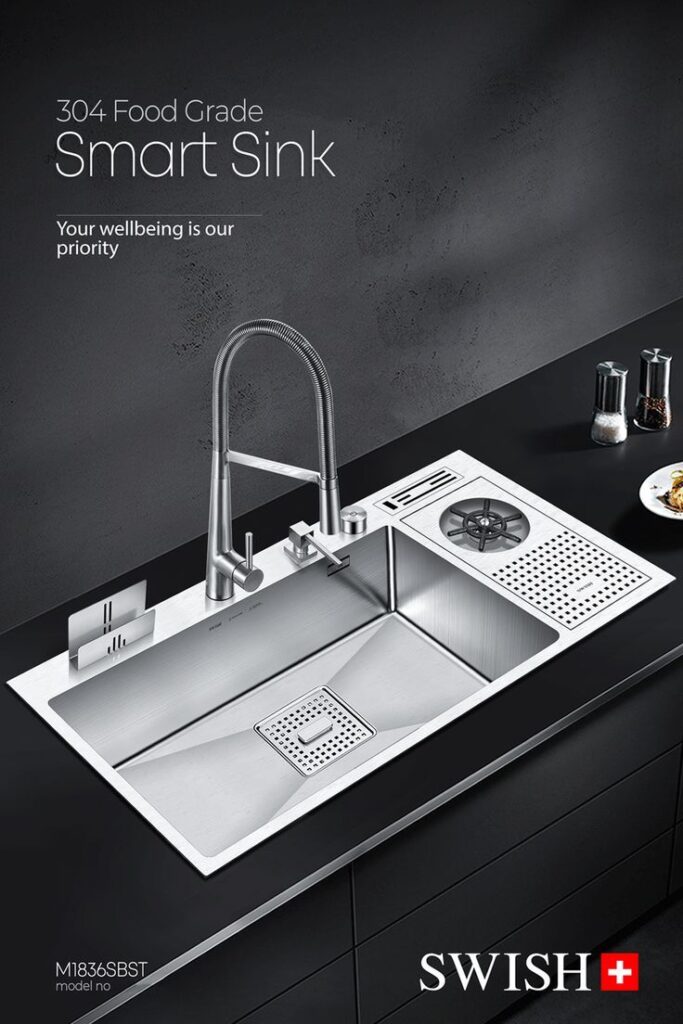
Smart technology helps homeowners track and control energy and water use from their phones. For example, smart refrigerators can suggest recipes based on what is inside and reduce food waste by monitoring expiration dates.
Smart faucets and dishwashers use sensors to save water. Some ovens have smartphone controls for precise cooking, saving time and energy.
Voice-controlled assistants allow hands-free operation of lights, appliances, and even grocery lists. This makes the kitchen more convenient while supporting energy savings by turning off devices when not in use.
- 1.8Kshares
- Facebook0
- Pinterest1.8K
- Twitter3
- Reddit0





